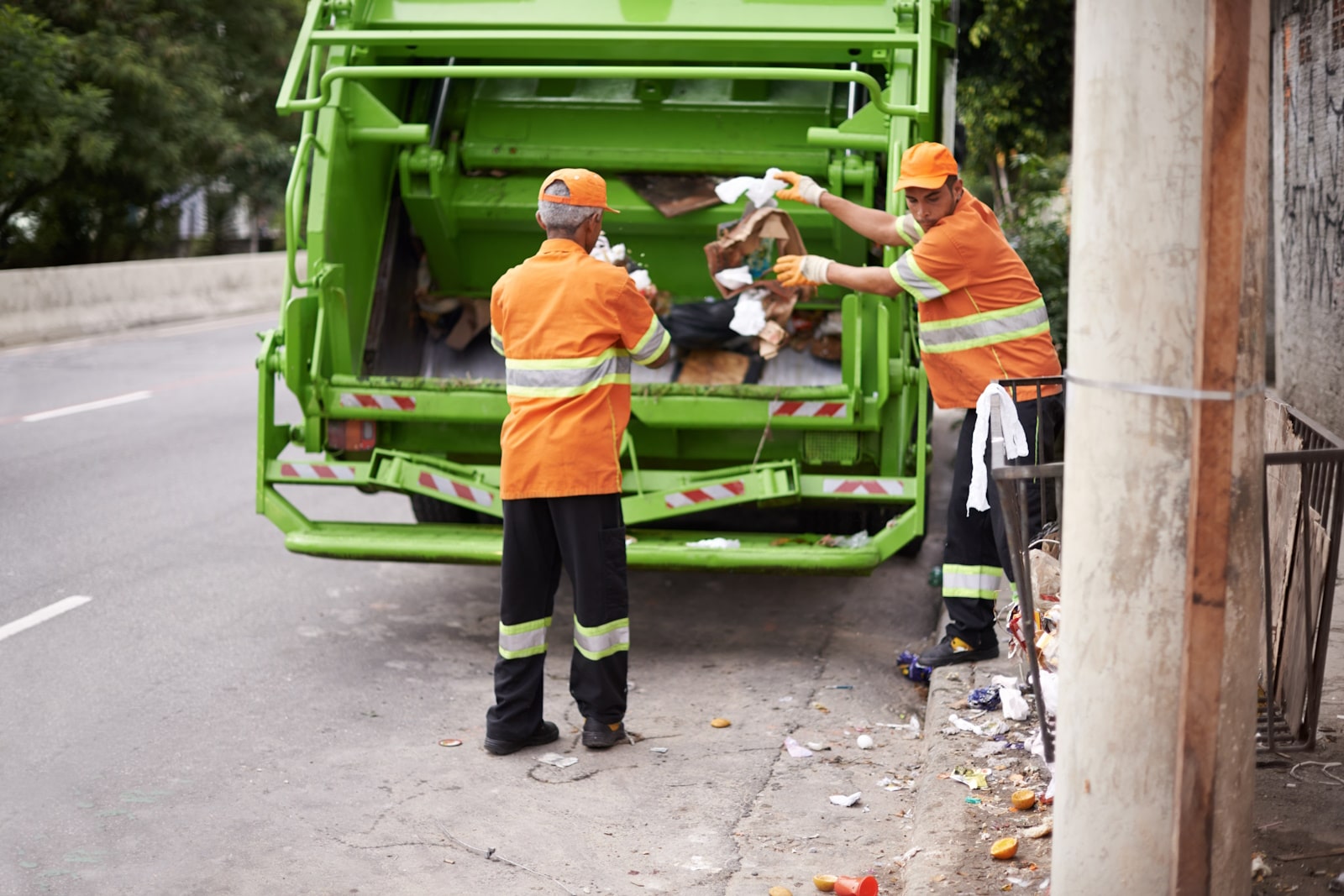Waste Disposal Companies in South Africa: Trends
Effective waste management is crucial for environmental sustainability and public health in South Africa. The industry of waste disposal companies in South Africa is substantial, valued at approximately R25 billion. Despite this, South Africa faces significant challenges, with only about 10% of waste being recycled or recovered, while the remaining 90% is landfilled or illegally dumped. This imbalance underscores the need for efficient waste disposal strategies, particularly in distinguishing between industrial and domestic waste streams.
Differences in Waste Generation and Composition
Industrial Waste
Industries in South Africa generate substantial quantities of waste, including hazardous chemicals, scrap metals, and manufacturing by-products. Industrial biomass is the largest single type of general waste, estimated at 36 million tonnes per annum. This includes by-products from the agricultural and forestry sectors, which, if not managed correctly, can contribute to environmental degradation. The management of such waste requires specialised handling to mitigate risks, often necessitating advanced treatment technologies and adherence to strict regulatory requirements. Waste disposal companies in South Africa must be equipped to manage these complex waste streams responsibly.
Domestic Waste
Households predominantly produce waste such as food scraps, packaging materials, and electronic waste (e-waste). South Africa generates millions of tonnes of general waste annually, with the majority ending up in landfills. A lack of widespread public participation in recycling efforts, combined with inconsistent waste separation policies, contributes to inefficient waste disposal. While some urban areas have made strides in promoting household recycling, rural areas often lack the necessary infrastructure to manage domestic waste effectively. The role of waste disposal companies in South Africa is especially important here, ensuring proper collection and disposal practices.
Regulatory and Compliance Challenges
Industrial Sector
The management of industrial waste in South Africa is governed by stringent regulations, notably the Waste Classification and Management Regulations of 2013. These regulations mandate that waste generators classify their waste according to the Globally Harmonized System (GHS) and ensure proper documentation and disposal. Compliance is critical, as improper handling of hazardous waste can lead to severe environmental and legal consequences. Industrial waste disposal companies in South Africa must also ensure adherence to licensing requirements and implement waste minimisation strategies to align with national sustainability goals.
Domestic Sector
Municipalities are primarily responsible for managing household waste, including collection and disposal. However, the regulatory framework for domestic waste is less stringent compared to industrial waste, leading to inconsistencies in waste management practices across different regions. Illegal dumping remains a major challenge in informal settlements and underdeveloped areas. While some municipalities have introduced waste separation at source initiatives, uptake remains low due to a lack of awareness and participation from the public. This is where waste disposal companies in South Africa can make a real difference, promoting better practices and waste management solutions at the local level.
Recycling and Waste Management Strategies
Industrial Initiatives
Many South African businesses are investing in large-scale recycling solutions, including closed-loop systems that allow for the reuse of materials within manufacturing processes. These systems help industries reduce their dependency on raw materials and lower overall waste production. Extended Producer Responsibility (EPR) policies are also gaining traction, compelling manufacturers to manage the entire lifecycle of their products, thereby promoting waste reduction and recycling. Some companies have also established waste-to-energy plants, converting industrial waste into biofuels and other renewable energy sources, contributing to a circular economy. Waste disposal companies in South Africa are key players in implementing and supporting these systems.
Domestic Initiatives
Informal waste pickers play a significant role in recycling domestic waste, often collecting recyclable materials from households and landfills. Their efforts significantly contribute to the country’s recycling rates, particularly in urban areas where informal waste collection is more prevalent. Community-based recycling programs have also emerged, aiming to increase public participation in waste separation and recycling activities. However, these initiatives require more robust support, better funding, and enhanced coordination between municipalities and private stakeholders to improve their overall effectiveness. Waste disposal companies in South Africa are essential partners in scaling these efforts.
Waste Disposal Costs and Economic Impacts
Financial Burden on Businesses
Businesses face substantial costs associated with waste disposal, including landfill levies and disposal fees. The rising expenses of sustainable waste solutions further add to this financial burden. However, government incentives are available to encourage companies to adopt waste reduction strategies, such as tax rebates for implementing environmentally friendly practices. Industries that invest in waste reduction and recycling initiatives can also benefit from cost savings in the long run by reducing their reliance on costly landfill sites and improving resource efficiency. Waste disposal companies in South Africa can help businesses reduce these costs by offering efficient, sustainable waste management solutions.
Impact on Households
For households, waste disposal costs are typically integrated into municipal service fees. Engaging in recycling can potentially reduce these costs and contribute to environmental conservation. However, the economic benefits of recycling for households are often limited by factors such as inadequate infrastructure, limited access to recycling centres, and a lack of public awareness campaigns promoting waste reduction strategies. Expanding community-based recycling initiatives and incentivising waste separation at source could help alleviate some of these challenges. Waste disposal companies in South Africa can support these efforts by providing accessible recycling services to households.
Conclusion
By understanding the distinct characteristics of industrial and domestic waste, implementing effective regulatory frameworks, and promoting recycling initiatives, South Africa can move towards a more sustainable waste management system.
At A-Thermal, we are committed to providing innovative and compliant waste disposal solutions tailored to the unique needs of both industrial and domestic clients. Contact us today to learn how we can assist you in managing waste responsibly and efficiently.







